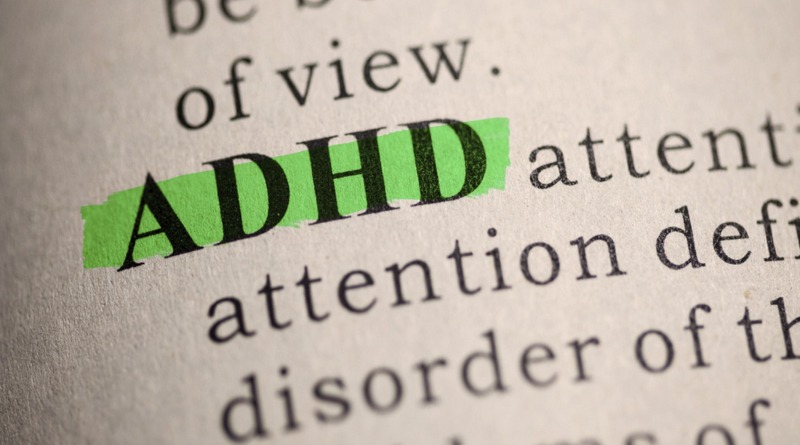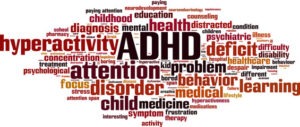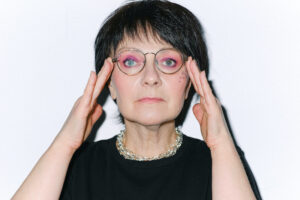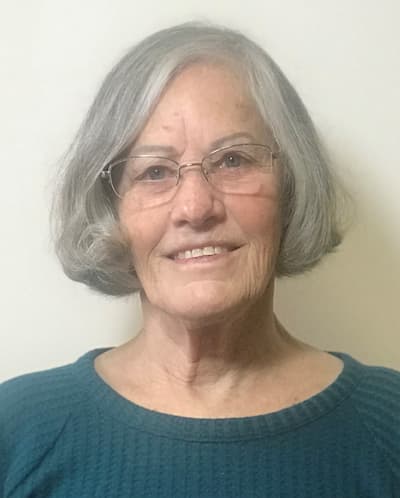
ADHD Has a Terrible Name
By Cynthia Hammer, MSW
ADHD: What’s In A Name?
Would it make a difference if it were called something else? Would that change people’s perceptions? Would it lessen the stigma? Would it change our experiences?

Does It Really Matters What Something Is? Not What It Is Called?
I ponder the words “Attention Deficit Hyperactivity Disorder” and “ADHD.” Would it really change that much if it were called something else? I concede, it could improve how we feel about our differences and could make us value our differences earlier in our lives. But would could a new name be? No one seems happy with “ADHD”, except, probably, the people who decided, in 1987, in the revised DSM-3 that ADHD would now cover all types of ADD.
Why, oh why, did we ever try to explain ADHD with meaningful words when no few words can ever describe it?
I believe the naming mistake was made when we changed from calling it Minimal Brain Dysfunction to Attention Deficit Disorder. If a new name is ever seriously considered, I have a few suggestions:
- Find a Greek or Latin word that relates, like depression derives from the Latinverb “deprimere,” which means “to press down” and anxiety derives from the Latin “anxietās” which means “troubled or worried” or autism from the Greek “autos” meaning “self” and “ism” meaning a state of being. A Greek or Latin-derived word will satisfy the researchers and scientists and the rest of us won’t care.
- Give it a made up name like Vyvanse, ADDerall, and Concerta are made up names. What about renaming ADHD Perplexo, Plexity, or Incompredo?
The History of the Name “ADHD”
In 1980 the American Psychiatry Association (APA) released a third edition of the DSM (DSM-III). They changed the name of the disorder from hyperkinetic reaction of childhood to attention deficit disorder (ADD). At the time, scientists believed hyperactivity was not a common symptom of the disorder. Instead, there were two subtypes of ADD: ADD with hyperactivity, and ADD without hyperactivity.
The APA released a revised version of the DSM-III in 1987. They removed ADD with or without hyperactivity distinction and changed the name to attention deficit hyperactivity disorder (ADHD). It included the three symptoms of inattentiveness, impulsivity, and hyperactivity into a single list of symptoms and did not identify subtypes of the disorder.
Ironically, Healthline.com states the name change to ADHD is, “Finally, a name that fits,” as if that was the end of disagreements about how to name, classify and describe the symptoms of this disorder!
The revised DSM-III included the three symptoms of inattentiveness, impulsivity, and hyperactivity into a single list of symptoms and did not identify subtypes of the disorder.
When the fourth edition of the DSM was released in 2000, it established the three subtypes of ADHD used by healthcare professionals today:
- combined type ADHD
- predominantly inattentive type ADHD
- predominantly hyperactive-impulsive type ADHD
Controversies About What to Call ADHD
Including inattentive ADHD as a subtype of ADHD is nonsensical. Children and adults with inattentive ADHD are not hyperactive so it is illogical for hyperactivity to be part of the name that includes us. I am relieved to find someone with more credentials than me, had a similar belief, albeit in 2005.
Adele Diamond, a professor of neuroscience wrote that “I join the growing chorus of those who argue that attention-deficit/hyperactivity disorder (ADHD) of the “truly” inattentive subtype (which I call ADD) is a different disorder from ADHD where hyperactivity is present. Not only is “ADHD without hyperactivity” (ADHD of the predominantly inattentive type) an awkward locution, but it also tries to squeeze ADD into a box in which it does not belong.” ( Source: NIH) . Unfortunately, the chorus she joined in 2005 stopped growing. I don’t find a single current article saying ADD should not be listed as a sub-type of ADHD.

Photo by Cotton Bro at Pexels.com
Is ADHD without the H is “…like a kiss without the squeeze?” Is it less desirable, more likely to be overlooked or ignored, a substandard species? It makes me wonder if the mis categorization of ADD contributes to the less frequent diagnosis and the less research of the inattentive type.
I realize some ADHD professionals and researchers exclaim that those with inattentive ADHD have hyperactive minds but where is the research that demonstrates this? Have beliefs become conflated with valid research results? To me, “hyperactive” means constantly active, unable to stop even when one wants to. I don’t think “hyperactive” describes the various thoughts and ideas that float through my mind.
Dr. Barkley believes calling it an “attention deficit” minimizes the impact of the disorder. He. Barkley imagines someone, hearing the term “attention deficit” for the first time, would dismissively ask, “Attention deficit? How bad can that be?” Dr. Barkley doesn’t suggest a new name for ADHD, but he strongly believes the current name is inadequate.
Others, perhaps in jest, say they initially thought “attention deficit” meant we weren’t given enough attention!
Dr. Hallowell thinks we should rename ADHD, VAST—Variable Attention Stimulus Trait. Maybe, with time, I will understand what it means as it means nothing to me now! But let me make a stab at it. Does it mean our attention varies depending on the stimulus? Does VAST totally explains what goes on with us? What I experience with inattentive ADHD is more than a variation in the amount of attention I pay in any moment and has been more damaging to my life than the word trait conveys.
Should We Stop Calling ADHD a Disorder or Even a Disability?
Because of the neurodiversity movement—which believes that while people have different ways or thinking or behaving–that doesn’t mean they have a disorder or a disability. The neuro-diverse community rejects usage of those words to describe the variabilities in brain functions, structures, chemistry, development, or what have you. If we use either word to describe ADHD, we may get called out.
However, we can’t have it both ways—simultaneously saying we are entrepreneurial wizards, and creative geniuses, with the superior skill of hyper-focusing—while also saying, we find it hurtful when people don’t understand how hard our lives are, when others minimize or deny our daily challenges, when they don’t acknowledge that our struggles are worse than anything they deal with. Is ADD/ADHD a problem, a disorder, a disability, a minor hindrance or is it a gift?

Photo by Ron Lach from Pexels.com
My layperson’s understanding of “depressed,” means someone is sad. Being depressed exists on a continuum so someone may say, “I’m depressed” but we understand that is different from someone being diagnosed with “Depression.” Similarly, people may say, “I’m anxious” meaning they are worried and troubled, but we know that is different from being diagnosed with “Anxiety.”
But for ADHD there is no single defining feature. It is a complex of behaviors, and it impacts each person with ADHD in different ways and to different degrees. We get annoyed if someone, casually, remarks, “I have a bit of ADHD, too.” How can they say that? They wouldn’t say “I have a bit of depression, too. “if a friend confides that they have been diagnosed with depression and have been prescribed medication and therapy. If someone reveals that they are being treated for an anxiety disorder, people don’t minimize their issue by saying, “Oh, anxiety! We all have that.”
But maybe I am wrong. Maybe people with severe depression are too often told, “It’s all in your head. Look on the bright side of life. That’s what’s wrong with you. You are always finding fault.” People with an anxiety disorder probably get told, “There is nothing to worry about. Worrying won’t change anything so why bother. Live and let live. That’s what I always say.”
We are not alone when others minimize our ADHD and offer simplistic solutions on how we can get over it by trying harder. This is one of the hazards that comes with hidden disorders. There, I’ve said it, disorder. It is not a problem for me to call it a disorder. But I also believe it can be a disability, a hindrance or a gift. It depends on where you are on your ADHD journey and the kinds of medical, therapeutic, social, emotional, intellectual and financial supports you received along the way. Sadly, I believe, the few people who find their ADD/ADHD gifts are the few who received or had a mix of the necessary supports in their lives. But for most, I believe, their ADHD remains a disorder or a disability.

Photo by Anna Shvets at Pexels.com
My poor vision needs glasses, and no one tells me if I only tried harder I could see without glasses. My allergies require monthly shots but no one blames me for having allergies and the sniffles. My arthritic knees required artificial knee replacements and no one tells me how I could have avoided arthritis if I had only tried harder. You may find it odd that I don’t feel diminished because I have health failings that many do not. And I don’t feel diminished by having ADHD. Just because I am comfortable saying my ADHD is a disorder or a disability, it doesn’t follow that I feel diminished because I have ADHD.
Now, I will really go out on a limb, and say, perhaps, Minimal Brain Dysfunction, the original name for ADHD is more accurate. The brain is another part of our body, and just as I have eyes with less than 20/20 vision, I have a brain with less than ideal functioning. It doesn’t lessen my value as a human being. As Jennifer Crocker, a psychologist at the U-M Institute for Social Research the world’s largest academic survey and research organization wrote, “My research shows that when you make your self-esteem contingent on something other than your basic value as a human being, it’s not a good thing, even if the source of your self-esteem is something as praise-worthy as….” doing well in life. (Source: UM Study)
And, I would add, no one should feel superior if they were lucky to be born neuro-normal or belittle those who weren’t as fortunate.
According to Carol Robbins, Ph.D., “ADHD is a brain-based neurological variation involving both chemical and structural differences, and yet many … continue to get a message that their symptoms are due to a character flaw, personality style, or lack of effort.” (Source: CHADD)
We know our brain irregularities are highly amenable to treatments—medication, education, exercise, mindfulness, therapies and coaching. Medication improves our brain’s chemistry and makes it easier to practice and acquire new and better behaviors. In turn, because of brain plasticity, our new behaviors create new and healthier neural pathways in our brains. This is the good news about ADHD, if that is what you insist on calling it!

Cynthia Hammer is the Executive Director of the Inattentive ADHD Coalition – www.iadhd.org.
She earned her Master’s Degree in Social Work in 1972. For many years she was a stay-at-home mom raising three sons while her husband spent long days at work as a general surgeon. She started a non-profit organization in 1993 to help adults with ADHD, and she recently started a different non-profit, the Inattentive ADHd Coalition to create more awareness of Inattentive ADHD. Visit it here: www.iadhd.org




